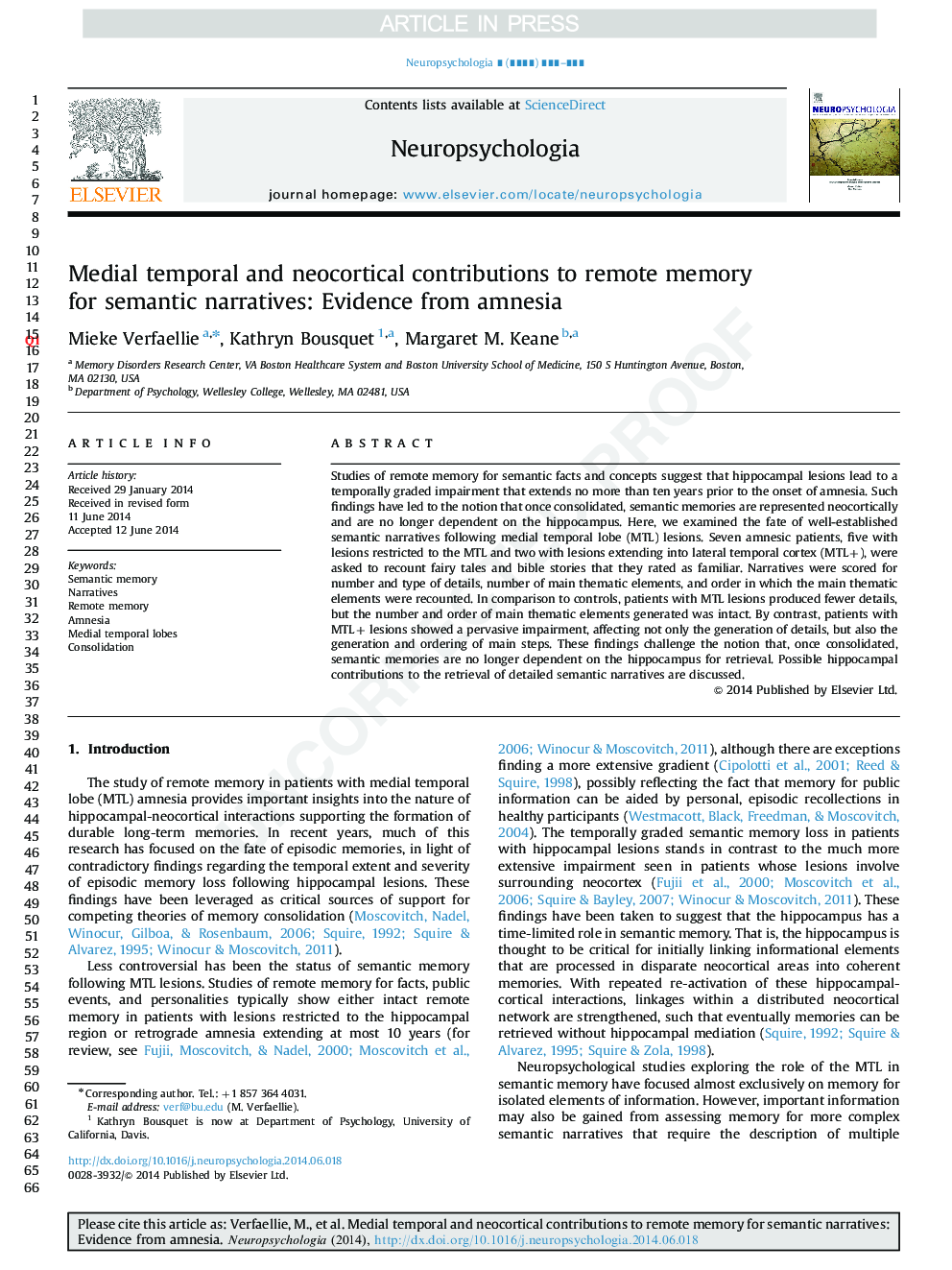| Article ID | Journal | Published Year | Pages | File Type |
|---|---|---|---|---|
| 7321087 | Neuropsychologia | 2014 | 8 Pages |
Abstract
Studies of remote memory for semantic facts and concepts suggest that hippocampal lesions lead to a temporally graded impairment that extends no more than ten years prior to the onset of amnesia. Such findings have led to the notion that once consolidated, semantic memories are represented neocortically and are no longer dependent on the hippocampus. Here, we examined the fate of well-established semantic narratives following medial temporal lobe (MTL) lesions. Seven amnesic patients, five with lesions restricted to the MTL and two with lesions extending into lateral temporal cortex (MTL+), were asked to recount fairy tales and bible stories that they rated as familiar. Narratives were scored for number and type of details, number of main thematic elements, and order in which the main thematic elements were recounted. In comparison to controls, patients with MTL lesions produced fewer details, but the number and order of main thematic elements generated was intact. By contrast, patients with MTL+ lesions showed a pervasive impairment, affecting not only the generation of details, but also the generation and ordering of main steps. These findings challenge the notion that, once consolidated, semantic memories are no longer dependent on the hippocampus for retrieval. Possible hippocampal contributions to the retrieval of detailed semantic narratives are discussed.
Related Topics
Life Sciences
Neuroscience
Behavioral Neuroscience
Authors
Mieke Verfaellie, Kathryn Bousquet, Margaret M. Keane,
